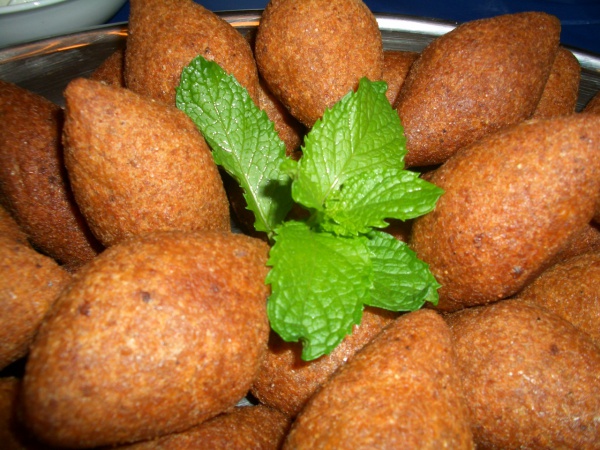Facts About Kibbeh
Kibbeh, also known as kubba, is a cherished traditional dish from the Levant region, crafted from bulgur, minced onions, and finely ground lean meat such as beef, lamb, goat, or even camel, all seasoned with Middle Eastern spices. This versatile dish can be formed into balls or patties and prepared in various ways: baked, simmered in broth, or even served raw. It is celebrated as a national dish in many Middle Eastern countries and is a staple of their cuisine.
Kibbeh is commonly enjoyed in Lebanon, Syria, Palestine, Jordan, Egypt, Iraq, Armenia, Iran, Israel, Cyprus, and Turkey. Due to significant Levantine immigration in the late 19th and early 20th centuries, kibbeh has also become popular in Latin American countries and parts of North America.
The name "kibbeh" derives from the Classical Arabic word "kubbah" meaning "ball." Depending on the country, the dish may be spelled differently, such as "kibbe" or "kibbeh."
In Levantine cuisine, there are countless variations of kibbeh, particularly those made with bulgur and minced lamb. Aleppo in northern Syria is renowned for its wide variety, boasting over 17 different types of kibbeh. These variations incorporate unique ingredients like sumac, yogurt, quince, lemon juice, and pomegranate sauce. Some well-known types include raw kibbeh, disk kibbeh, plate kibbeh, and kibbeh nayyeh, a raw version often served as part of a mezze.
Iraq also has its own versions of kibbeh, such as Kubba Mosul, Kubba Halab, and Kubbat Shorba. These variations differ in ingredients and preparation methods, featuring forms like a flat disc shape, a rice crust, or being served as a stew.
In other regions, kibbeh has adapted to local tastes. For instance, on Colombia's Caribbean coast, ground beef is used instead of lamb, reflecting the influence of the Middle Eastern population in the area. Here, kibbeh is often enjoyed at social gatherings alongside other local favorites like empanadas and carimañolas.

 Libya
Libya